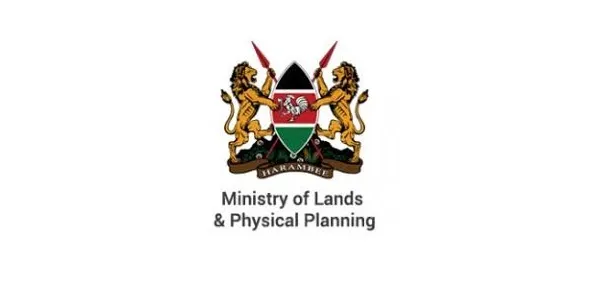Kenya Real Estate Developers Regulatory Board
As of 2025, there is no standalone “Kenya Real Estate Developers Regulatory Board” established as a statutory body dedicated solely to licensing and regulating property developers. However, real estate developers in Kenya are legally regulated through a combination of existing laws, professional bodies, and government agencies that enforce compliance, protect buyers, and ensure project legitimacy.
Understanding this de facto regulatory framework is essential for buyers, investors, and developers.
🏛️ Who Regulates Real Estate Developers in Kenya?
While no single “board” exists exclusively for developers, the following institutions enforce regulation:
1. Institution of Surveyors of Kenya (ISK)
- Role: Regulates real estate sales agents and brokers
- Impact on Developers:
- Developers must work with ISK-licensed agents to legally market and sell property
- Unlicensed salespersons face fines or prosecution
- Legal Basis: Land Act (2012), Section 41
✅ Developers who partner with ISK agents are more likely to be compliant and transparent.
2. Ministry of Lands and Physical Planning
- Role: Oversees land use, title issuance, and subdivision approvals
- Key Functions:
- Approves land subdivisions
- Registers titles for new estates
- Maintains the Central Land Registry
- Digital Tool: Ardhisasa for online land searches and transactions
✅ Developers must have individual title deeds processed for buyers—no legal project operates without this.
3. National Environment Management Authority (NEMA)
- Role: Approves all developments for environmental impact
- Requirement:
- Developers must submit an Environmental Impact Assessment (EIA)
- No construction can begin without NEMA approval
- Penalty: Fines or demolition for non-compliance
✅ Always ask for the NEMA Certificate of Approval before buying.

4. County Governments
- Role: Issue development permits, building plans, and zoning approvals
- Requirements:
- Submit architectural and structural plans
- Pay development fees
- Comply with Physical Planning Act
- Oversight: Inspections during construction
✅ Projects in Ruiru, Ruaka, Mombasa, and Kisumu must be approved by their respective county governments.
5. Law Society of Kenya (LSK)
- Role: Regulates advocates who handle conveyancing and due diligence
- Impact:
- All property transfers must be handled by an LSK-licensed lawyer
- Developers must work with advocates for title processing
- Buyer Protection: Advocates conduct land searches and verify ownership
6. National Construction Authority (NCA)
- Role: Regulates construction firms and engineers
- Requirements:
- Contractors must be NCA-registered
- Engineers and architects must be licensed
- Not Directly for Developers, but ensures build quality and safety
✅ Ask if the contractor and structural engineer are NCA-registered.

🔐 What This Means for Buyers & Investors
Even without a dedicated “Developers Regulatory Board,” you are protected if you:
- Buy from developers who work with ISK-licensed agents
- Confirm NEMA and county approvals
- Use an LSK-registered advocate for due diligence
- Verify that the project offers individual title deeds
- Check that the contractor is NCA-registered
✅ Signs of a Legitimate Developer
| ❌ No ISK agent | ✅ Uses ISK-licensed sales team |
| ❌ No NEMA Certificate | ✅ Shows NEMA EIA approval |
| ❌ No county permit | ✅ Displays development permit |
| ❌ No title deeds | ✅ Offers individual title deeds |
| ❌ Cash-only sales | ✅ Accepts M-Pesa with receipts |
📢 Calls for a Dedicated Developers Board
There is growing demand from industry players and consumer groups for a Kenya Real Estate Developers Authority to:
- License and register developers
- Maintain a public registry of approved projects
- Investigate fraud and project delays
- Set standards for delivery timelines and quality
Until then, buyers must rely on existing laws and due diligence.
FAQs
Q: Is there a Kenya Real Estate Developers Regulatory Board?
A: No—there is no standalone board. Regulation is shared between ISK, NEMA, County Governments, and the Ministry of Lands.
Q: How do I verify if a developer is legitimate?
A:
- Check for NEMA approval
- Confirm county development permit
- Ensure they use an ISK-licensed agent
- Hire an LSK advocate to verify title and ownership
Q: Can a developer sell land without NEMA approval?
A: No—selling land without NEMA and county permits is illegal. The project can be shut down, and buyers may not get titles.
Q: Are real estate developers in Kenya licensed?
A: Not directly—but they must work with licensed agents (ISK), advocates (LSK), and contractors (NCA). Their projects must also be approved by NEMA and the county.
Final Word
While Kenya does not yet have a dedicated Real Estate Developers Regulatory Board, the current multi-agency system provides strong legal oversight—if buyers know where to look. Always verify approvals, use licensed professionals, and demand title deeds to protect your investment.

